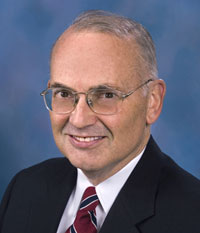By Kevin Gray
His most memorable case as an attorney didn’t come when Dave Reif ’68 represented a European seller of biologicals in U.S. distributorship litigation. Nor did it come when he participated in simultaneous litigation in three jurisdictions stemming from claims between steel importers and domestic customers. Rather, his most memorable case was much “smaller,” but represented a huge milestone in his stellar career.
“My most memorable case was my first case,” he says without hesitation.
A government and law graduate, Reif was in Harvard Law School and was doing volunteer work. The case involved a woman who had been arrested on a Friday night after her landlord claimed she had stolen various items from an apartment. She had spent the weekend in jail.
“On Monday, the case was tried in District Court and she was acquitted,” Reif notes. “Afterwards, she introduced me to her son as ‘her lawyer.’ I probably have tried 50 cases that have gone to jury, but that one stands out for me because she was the first person to call me her lawyer.”
Reif is a partner at McCarter & English in Hartford, Conn., where he began in 2003. His focus is on—but not limited to—distributorship law and products liability. In addition, he has worked on various cases and serves as regional counsel in the defense of asbestos litigation.
His work also has included birth defect claims against hospitals and their staffs, defense of a client against alleged credit card fraud in state and federal courts in Georgia, and representation of franchisees in litigation arising from the franchisor’s change in distribution methods.
He contributed to the book Inside the Mind: Leading Product Liability Lawyers (Aspatore Press, 2003).
“I got a call from the publisher to write a chapter,” says Reif, who lives in Branford, Conn. “It was a lot of fun. What happens when you practice law on a day-to-day basis is that you don’t get to sit down and say ‘What do I do?’ or on a very fundamental level, ‘Why do I do it?’ and ‘Where is the profession going to be in 10 years?’ That’s what we were asked to do for this book.”
For his outstanding work, he was selected as a James W. Cooper Fellow of the Connecticut Bar Association. The fellows are a group of Connecticut lawyers, academics, and judges selected by their peers based on experience, reputation in the legal profession, and service to the community and the bar.
“We fund research into issues related to the courts and the future of the profession, engage in projects like a high school truancy reduction program, and sponsor an annual high school essay scholarship program,” he says. “My reaction to being selected is that, while any of these groups have a little bit of a ‘popularity contest’ element, the reality is that people we try cases against day in and day out get to know us awfully well—both at our best and our worst. A reputation for skill and integrity among those critics is one of the things I’m most proud of.”
Reif is also very proud of his association with Lafayette, where he was president of the Government and Law Society as a student. Now he is a member of the Alumni Association Executive Committee, serving as vice president of outreach. He has oversight of the Undergraduate Relations, Young Alumni, Career Services, Alumni Admissions Representatives, and Legacy Committees.
“We learned leadership skills at Lafayette,” he says. “Academically, I found the experience to be very valuable. Members of the executive committee and alumni board were all at Lafayette at different times. Yet, we agree that it is having the ability to sit down one-on-one with professors outside of the classroom and the opportunity to share ideas with them and see how they think that is the distinguishing factor for Lafayette. That’s a quality that you wouldn’t find until you were a graduate student at a larger university. The professors there are at Lafayette because they want to teach at the undergraduate level.”
The pride Reif has for his association with Lafayette is something he hopes to share with current and future alumni.
“I like where Lafayette has gone and where it is going,” he says. “It’s academically rigorous and has an incredible tradition. When I was at Lafayette, the alumni passed that tradition to us and I want to do what I can to pass that tradition of service to the school among my generation to the people who come after me.”

1 Comment
Comments are closed.